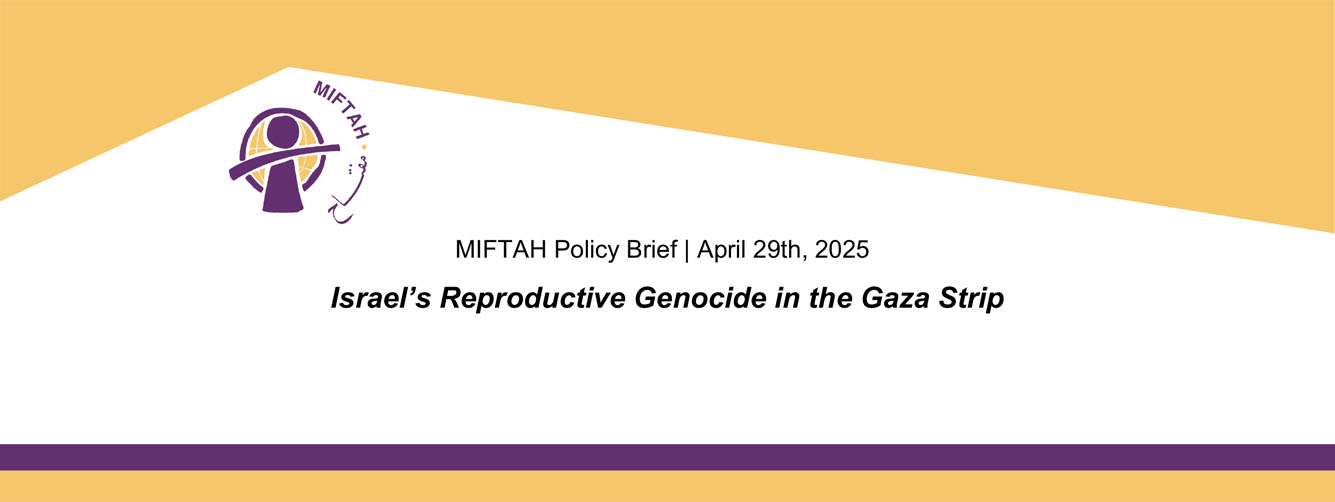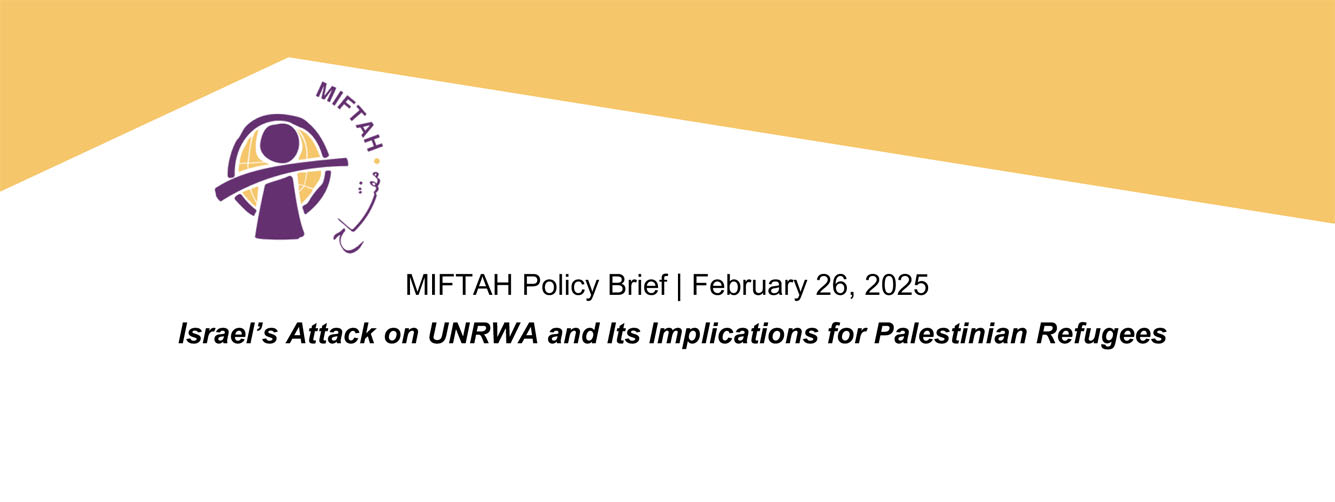The ceasefire reached in the context of the Roadmap peace initiative has resulted in a marked reduction in violence and killings, and has brought a welcome respite to the Israeli and Palestinian civilian populations. Even though the overwhelming majority of Palestinian detainees remain behind bars in Israeli prisons and military detention centres, the release of some detainees who had been held without charge or trial has raised hopes for further releases.
However, hopes that, as part of the implementation of the Roadmap, Israel would lift the closures and movement restrictions which have paralyzed life and the economy in the Occupied Territories have not materialized. By the beginning of August 2003, the Israeli army had lifted only some four checkpoints, out of a total of more than 300 checkpoints and roadblocks.
Even if all the blockades were lifted immediately and free movement allowed in the Occupied Territories it would take years for the Palestinian population to resume a normal life and to rebuild the economy which has been virtually destroyed by years of siege. Long term investments and efforts will be required to reverse the dramatic increase in poverty and unemployment levels of the last few years. These efforts will only be possible if Israel restores freedom of movement in the Occupied Territories.
Restrictions imposed by Israel on the movement of Palestinians within the Occupied Territories reached an unprecedented level in recent years. The effect has been to deprive Palestinians not only of their freedom of movement but of other basic human rights -in particular, their right to work and to provide a living for themselves and their families.
Palestinians have had their movement restricted to varying degrees of restrictions since Israel's occupation of the West Bank and Gaza Strip in 1967. Such restrictions increased in the past decade and have reached an unprecedented level in the past three years, since the September 2000 renewal of the Palestinian uprising against Israeli occupation, known as the intifada or the al-Aqsa intifada.(2) Since then, increasing restrictions and new measures adopted to tighten and enforce closures (the prohibition of movement within and/or between areas) and curfews have all but destroyed the Palestinian economy.
Freedom of movement for people and goods, at least within borders, is an essential requirement for any functional economy, particularly so for a new economy trying to develop and establish itself against the backdrop of dependency created by 36 years of occupation. Yet some 3.5 million Palestinians who live in the Occupied Territories are often effectively confined to their towns and villages by closures enforced by Israeli military checkpoints and roadblocks. Some villages have been completely sealed off and urban areas are frequently placed under 24-hour curfew, during which no one is allowed to leave the house, often for prolonged periods. Palestinians have been prohibited from driving on main roads connecting one part of the West Bank to another.
Trips of a few kilometres, where they are possible, take hours, following lengthy detours to avoid the areas surrounding Israeli settlements and settlers' roads (known as "bypass roads"), which connect the settlements to each other and to Israel and which are prohibited to Palestinians. With the spread of settlements and bypass roads throughout the Occupied Territories, the prohibited areas have multiplied. Where the settlements are closest to Palestinian villages, movement in and out of these villages is even more restricted than elsewhere. In parts of the Gaza Strip, areas where Palestinians live surrounded by Israeli settlements have been declared closed military zones. These are only accessible, and only at specific times, to the residents, who are also often stopped from leaving or returning to their homes for days or even weeks.
In addition to the increased time, effort and cost involved, journeys are also not without risk. To enforce closures and curfews, Israeli soldiers routinely fire live ammunition, throw tear gas or sound bombs, beat and detain people, and confiscate vehicles and documents (IDs). Ordinary activities, such as going to work or to school, taking a baby for immunization, attending a funeral or a wedding, expose women and men, young and old, to such risks. Hence, many people limit their activities outside the home to what is absolutely essential.
Closures and curfews have prevented Palestinians from reaching their places of work and from distributing their products to internal and external markets, and have caused shortages. Factories and farms have been driven out of business by the losses incurred, dramatically increased transport costs and loss of export markets. As a result, unemployment has soared to over 50% and more than half of the Palestinian population is now living below the poverty line. With the sharp decline in the standard of living in the Occupied Territories, malnutrition and other illnesses have increased. Closures and curfews have prevented Palestinian children and youths from attending classes for prolonged periods, violating their right to education and undermining their future professional prospects.
Amnesty International has documented in numerous reports the deterioration of the human rights situation and the violence that has reached a level unprecedented in the 36 years of Israel's occupation of the West Bank and Gaza. In the past three years more than 2,100 Palestinians have been killed by the Israeli army in the Occupied Territories, including some 380 children. Palestinian armed groups have killed some 750 Israelis, most of them civilians, and including more than 90 children. Tens of thousands of people have been injured, many maimed for life. The Israeli army has destroyed more than 3,000 Palestinian homes, and hundreds of workshops, factories and public buildings in the West Bank and Gaza. They have bulldozed vast areas of cultivated land, uprooting olive groves and orchards and flattening greenhouses and fields of growing crops.
These abuses, notably the destruction of land and property, have contributed to damaging the economy in the Occupied Territories. However, the stringent restrictions on the movement of Palestinians imposed in the past three years have been the main cause of the severe economic depression and the increase in unemployment.
Israel has a right and a duty to protect people from repeated bombings and other attacks by Palestinian armed groups from the Occupied Territories, including by restricting access to its territory. However, under international human rights and humanitarian law, it is obliged to ensure freedom of movement, an adequate standard of living, and as normal a life as possible to the population in occupied territories. International law also prohibits an occupying power from imposing collective punishment on the occupied population.
This report analyses the impact of movement restrictions on the right to work of Palestinians in the West Bank and the Gaza Strip.(3) It details the findings of Amnesty International's research and describes representative cases in different areas of the West Bank and Gaza. The report contends that the widespread and prolonged closures, curfews and other restrictions on movement currently imposed cannot be justified on security grounds, and discriminate against Palestinians, and are often used as a form of collective punishment in reprisal for attacks committed by Palestinian armed groups.
Among its recommendations, Amnesty International urges the Israeli government to lift the restrictions on movement that constitute collective punishment and to make every effort to enable as normal a life as possible for the inhabitants of the Occupied Territories. It calls for the evacuation of Israeli settlers from the West Bank and Gaza Strip, on the grounds that their residence in the Occupied Territories violates international law, and that measures purportedly taken to protect the security and freedom of movement of Israeli settlers impose serious human rights abuses against Palestinians. Restrictions on the movement of Palestinians and goods should be imposed only in relation to a specific security threat and if they are non-discriminatory and proportionate in impact and duration. They should not obstruct the freedom of movement required to maintain an adequate standard of living or have a negative impact on the Palestinians' fundamental rights, including the right to work.







